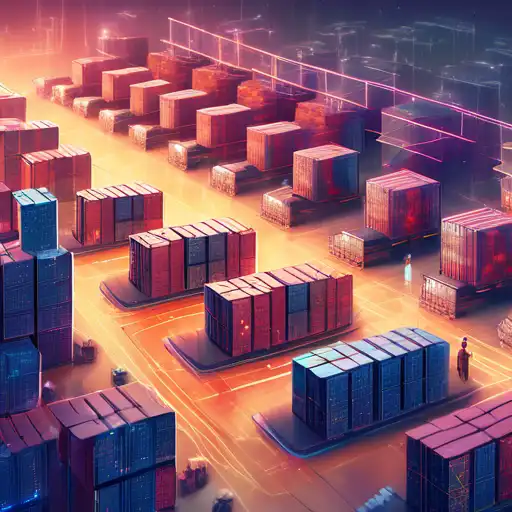The Transformative Power of Blockchain in Modern Supply Chains
In the digital age, blockchain technology is emerging as a revolutionary force in transforming supply chains across industries. By offering unparalleled transparency, security, and efficiency, blockchain is setting new standards for how goods are tracked and transactions are recorded. This article explores the multifaceted ways blockchain is reshaping supply chains, making them more resilient and responsive to the demands of the 21st century.
Enhanced Transparency and Traceability
One of the most significant advantages of blockchain technology in supply chains is its ability to provide complete transparency and traceability of products from origin to consumer. Each transaction or movement of goods is recorded as a block in the chain, creating an immutable and tamper-proof ledger. This level of detail ensures that all stakeholders have access to real-time information, reducing the chances of fraud and errors.
Improved Security and Reduced Fraud
Blockchain's decentralized nature means that there is no single point of failure, making it incredibly secure against cyber threats. By encrypting transactions and distributing them across a network of computers, blockchain ensures that data cannot be altered without consensus. This security feature is particularly valuable in preventing counterfeit goods from entering the supply chain, protecting both businesses and consumers.
Streamlined Operations and Cost Reduction
By automating and digitizing manual processes, blockchain technology can significantly reduce operational costs and inefficiencies. Smart contracts, for example, automatically execute transactions when predefined conditions are met, eliminating the need for intermediaries and reducing paperwork. This not only speeds up the supply chain but also cuts down on costs associated with delays and human error.
Greater Sustainability and Ethical Sourcing
Blockchain also plays a pivotal role in promoting sustainability and ethical sourcing within supply chains. By providing a transparent record of a product's journey, companies can verify the sustainability of their sources and ensure compliance with environmental and labor standards. Consumers, in turn, can make more informed choices, supporting brands that align with their values.
Challenges and Future Outlook
Despite its potential, the adoption of blockchain in supply chains faces challenges, including technological complexity, regulatory hurdles, and the need for industry-wide collaboration. However, as more organizations recognize its benefits, blockchain is poised to become a cornerstone of supply chain management. The future of supply chains lies in embracing digital transformation, with blockchain leading the charge towards more transparent, efficient, and sustainable operations.
For more insights into how technology is shaping the future of industries, explore our technology trends section.
